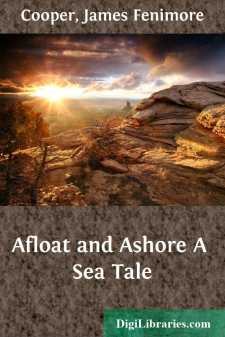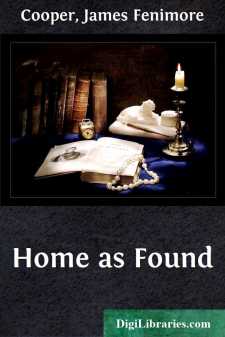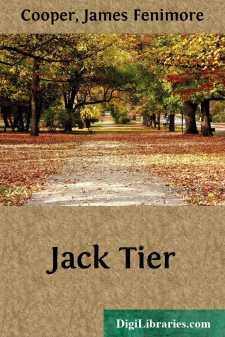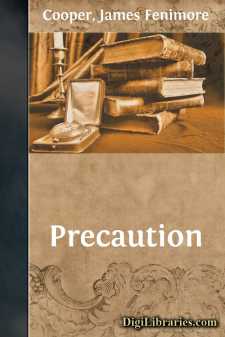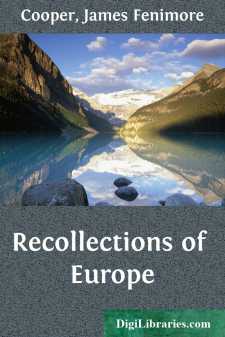Categories
- Antiques & Collectibles 13
- Architecture 36
- Art 48
- Bibles 22
- Biography & Autobiography 815
- Body, Mind & Spirit 144
- Business & Economics 28
- Children's Books 18
- Children's Fiction 14
- Computers 4
- Cooking 94
- Crafts & Hobbies 4
- Drama 346
- Education 58
- Family & Relationships 59
- Fiction 11835
- Games 19
- Gardening 17
- Health & Fitness 34
- History 1378
- House & Home 1
- Humor 147
- Juvenile Fiction 1873
- Juvenile Nonfiction 202
- Language Arts & Disciplines 89
- Law 16
- Literary Collections 686
- Literary Criticism 179
- Mathematics 13
- Medical 41
- Music 40
- Nature 180
- Non-Classifiable 1768
- Performing Arts 7
- Periodicals 1453
- Philosophy 65
- Photography 2
- Poetry 896
- Political Science 203
- Psychology 44
- Reference 154
- Religion 515
- Science 126
- Self-Help 85
- Social Science 83
- Sports & Recreation 34
- Study Aids 3
- Technology & Engineering 60
- Transportation 23
- Travel 463
- True Crime 29
James Fenimore Cooper
James Fenimore Cooper was a 19th-century American writer best known for his historical novels set on the American frontier. His most famous work, "The Last of the Mohicans," is part of the "Leatherstocking Tales" series, which follows the adventures of Natty Bumppo, a resourceful frontiersman. Cooper's writing significantly contributed to the development of American literature, highlighting themes of wilderness, native peoples, and the conflict between civilization and nature.
Author's Books:
Sort by:
RESIDENCE LETTER I. Influence of the late Revolution in France.—General Lafayette—Sketch of his Private Life.—My visits to him.—His opinion of Louis XVI.—Mr. Morris and Mr. Crawford.—Duplicity of Louis XVIII.—Charles X.—Marie Antoinette.—Legitimacy of the Duc de Bordeaux.—Discovery of the Plot of 1822.—Lafayette's conduct on that occasion.—A negro Spy.—General...
more...
The writer has published so much truth which the world has insisted was fiction, and so much fiction which has been received as truth, that, in the present instance, he is resolved to say nothing on the subject. Each of his readers is at liberty to believe just as much, or as little, of the matter here laid before him, or her, as may suit his, or her notions, prejudices, knowledge of the world, or...
more...
Chapter I."Good morrow, coz.Good morrow, sweet Hero."SHAKSPEARE.When Mr. Effingham determined to return home, he sent orders to his agent to prepare his town-house in New-York for his reception, intending to pass a month or two in it, then to repair to Washington for a few weeks, at the close of its season, and to visit his country residence when the spring should fairly open. Accordingly, Eve...
more...
Preface. In one respect, this book is a parallel to Franklin's well-known apologue of the hatter and his sign. It was commenced with a sole view to exhibit the present state of society in the United States, through the agency, in part, of a set of characters with different peculiarities, who had freshly arrived from Europe, and to whom the distinctive features of the country would be apt to...
more...
PREFACE. This work has already appeared in Graham's Magazine, under the title of "Rose Budd." The change of name is solely the act of the author, and arises from a conviction that the appellation given in this publication is more appropriate than the one laid aside. The necessity of writing to a name, instead of getting it from the incidents of the book itself, has been the cause of this...
more...
Chapter I. --"But I'll not chide thee;Let shame come when it will, I do not call it;I do not bid the thunder-bearer shoot,Nor tell tales of thee to high-judging Jove;Mend when thou canst--" Lear. It is almost as impossible to describe minutely what occurred on the boat's reaching the Wallingford, as to describe all the terrific incidents of the struggle between Drewett and myself in...
more...
CHAPTER I. The turf shall be my fragrant shrine;My temple, Lord! that arch of thine;My censer's breath the mountain airs,And silent thoughts my only prayers.MOORE The sublimity connected with vastness is familiar to every eye. The most abstruse, the most far-reaching, perhaps the most chastened of the poet's thoughts, crowd on the imagination as he gazes into the depths of the illimitable...
more...
W. C. Bryant's Discourse on the Life, Genius, and Writings of James Fenimore Cooper, Delivered at Metropolitan Hall, N.Y., February 25, 1852. It is now somewhat more than a year, since the friends of James Fenimore Cooper, in this city; were planning to give a public dinner to his honor. It was intended as an expression both of the regard they bore him personally, and of the pride they took in the...
more...
PREFACE. It may seem to be late in the day to give an account of the more ordinary characteristics of Europe. But the mass of all nations can form their opinions of others through the medium of testimony only; and as no two travellers see precisely the same things, or, when seen, view them with precisely the same eyes, this is a species of writing, after all, that is not likely to pall, or cease to be...
more...
CHAPTER I. "Look you, Who comes here: a young man, and an old, in solemn talk." As You Like it. It is easy to foresee that this country is destined to undergo great and rapid changes. Those that more properly belong to history, history will doubtless attempt to record, and probably with the questionable veracity and prejudice that are apt to influence the labours of that particular muse;...
more...



